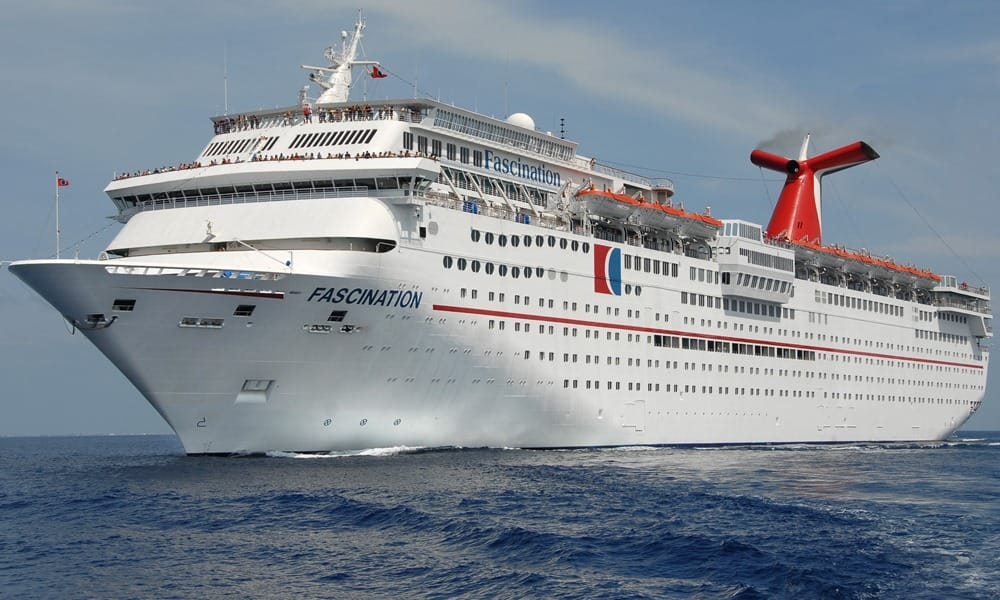In this week’s travel law article, we examine the case of Horne v. Carnival Corporation, No. 17-15803 (11th Cir. June 29, 2018) wherein the Court noted that “On their honeymoon, Horne and his wife Julie were on the cruise ship Fascination and went to take pictures of the sunset on an exterior deck. It was a very windy day, and when they desired to leave the exterior deck the couple had to go through a heavy metal door. A warning sign on the door said ‘CAUTION-WATCH YOUR STEP-HIGH THRESHOLD’. There was no other warning. Julie opened the door, but had trouble, so Horne grabbed the door along its edge and held it open. Once Horne walked through the door, he began to release it. The door slammed shut as Horne released it, closing before he could get his hand free and chopping off the first finger of his right hand at the distal joint. Horne brought suit against Carnival, alleging failure to warn of a dangerous condition and negligent maintenance of the door. The district court granted summary judgment to Carnival, finding that Carnival had no duty to warn because there was no evidence that Carnival was on notice, actual or constrictive, of the dangerous condition and because the danger was open and obvious…The district court’s grant of summary judgment is affirmed in part and reversed in part and remanded”.
In the Horne case the Court noted that “Because the injury occurred on navigable waters, federal admiralty law applies to this case. To establish his claim for negligence, Horne must show that Carnival had a duty of care, breached that duty and that breach was the proximate cause of Horne’s injury. ‘[A] cruise line owes its passengers a duty to warn of known dangers’… However, in order to have a duty to warn of a danger, the cruise line must have ‘actual or constrictive notice of the unsafe condition’…Moreover, there is no duty to warn of open and obvious dangers’”.
Notice Of Hazardous Condition
“{I]n this case, there is evidence that the cruise line sometimes posted signs on the deck door in the event of strong winds. These signs would read ‘caution, strong winds’. There was no such sign on the day of the incident. Viewed in the light most favorable to Horne, the evidence that Carnival, in the past, put up signs warning of strong winds creates a genuine issue of fact as to whether Carnival had actual or constructive notice of the hazardous condition”.
Open & Obvious Danger
“In determining whether a risk is open and obvious, we focus on ‘what an objectively reasonable person would observe and do[] not take into account the plaintiff’s subjective perceptions’. Horne argues that the relevant danger is not the wind, or the heavy door, but rather the risk that the wind would cause the door to slam so hard and so fast that it would chop off his finger. Horne contends that this risk is not open or obvious to the reasonable person. Horne states that although he knew that the door was heavy, and it was windy, he had no reason to believe the door would close so hard and fast that it chopped off his finger”.
Duty To Warn Claim
“He also states that he had no way of knowing that the door would slam shut so fast, despite his best efforts, he could not remove his hand in time. Based on this testimony, viewed in the light most favorable to Horne, we hold that a reasonable juror would find that this hazard was not open and obvious. Thus, we reverse with respect to the duty to warn claim”.
Failure To Maintain Claim
“Horne’s expert’s testimony that the door was in a dangerous condition is only relevant if Horne can first show that Carnival had actual or constructive notice of this danger. The only evidence Horne presents that Carnival had actual or constructive notice that the door was dangerous were two work orders entered, and subsequently closed, for repairs on the door. Plaintiff presents no evidence that these work orders were not actually performed; in fact, Carnival’s corporate representative testified that ‘closing’ a work order indicates that the requested repairs have been completed. Thus, these work orders do not provide evidence that Carnival had notice that the door remained in a dangerous condition at the time of the incident….Thus, the district court did not err with respect to the failure to maintain claim”.
Conclusion
“For the foregoing reasons, we affirm the judgment of the district court with respect to the failure to maintain claim, but we reverse with respect to the claim of duty to warn”.

Patricia and Tom Dickerson
The author, Thomas A. Dickerson, passed away on July 26, 2018 at the age of 74. Through the graciousness of his family, eTurboNews is being allowed to share his articles that we have on file which he sent to us for future weekly publication.
The Hon. Dickerson retired as an Associate Justice of the Appellate Division, Second Department of the New York State Supreme Court and wrote about Travel Law for 42 years including his annually-updated law books, Travel Law, Law Journal Press (2018), Litigating International Torts in U.S. Courts, Thomson Reuters WestLaw (2018), Class Actions: The Law of 50 States, Law Journal Press (2018), and over 500 legal articles many of which are available here. For additional travel law news and developments, especially in the member states of the EU, click here.
Read many of Justice Dickerson’s articles here.
This article may not be reproduced without permission.
WHAT TO TAKE AWAY FROM THIS ARTICLE:
- The district court granted summary judgment to Carnival, finding that Carnival had no duty to warn because there was no evidence that Carnival was on notice, actual or constrictive, of the dangerous condition and because the danger was open and obvious…The district court's grant of summary judgment is affirmed in part and reversed in part and remanded”.
- Horne argues that the relevant danger is not the wind, or the heavy door, but rather the risk that the wind would cause the door to slam so hard and so fast that it would chop off his finger.
- Viewed in the light most favorable to Horne, the evidence that Carnival, in the past, put up signs warning of strong winds creates a genuine issue of fact as to whether Carnival had actual or constructive notice of the hazardous condition”.






















